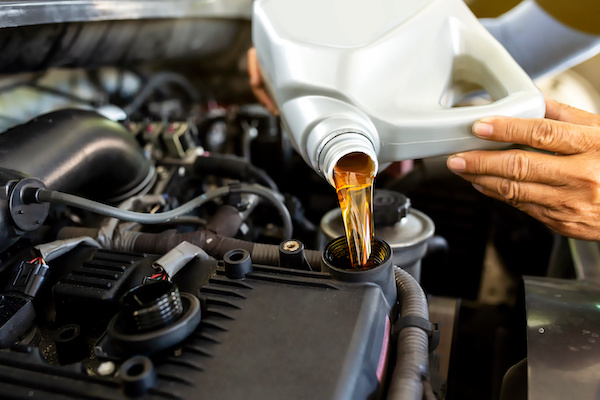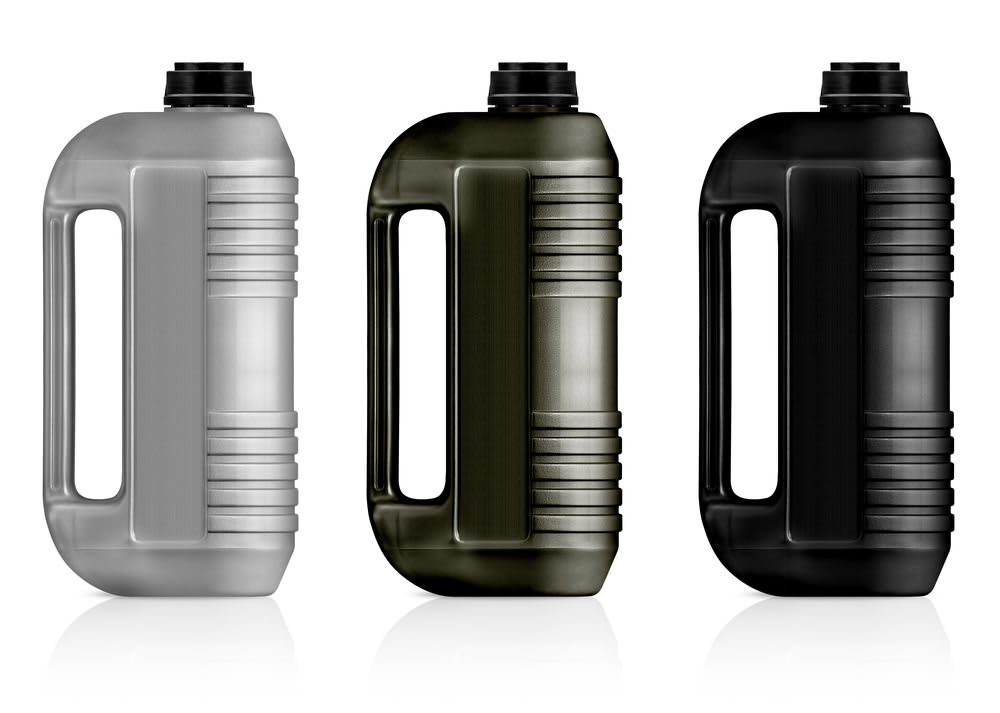Leaving engine oil in your car is not safe as it can lead to engine sludge, reduced lubrication, oil leaks, and even potential engine failure. It is important to regularly change your engine oil, especially if your car isn’t frequently driven.
Failure to do so can cause serious damage to your engine. Additionally, it is recommended to check your fluid levels weekly and carry spare supplies like coolant, oil, and windscreen fluid in case of emergencies. However, it is not safe to leave oil outside, especially in extreme temperatures, as it can spoil and become less effective.
It is best to store spare oil in a cool, dry place to ensure its longevity.
The Basics Of Engine Oil Storage
Storing engine oil in your car is common for topping up levels. However, improper storage poses risks such as engine sludge and reduced lubrication. It can even lead to oil leaks and potential engine failure. The lifespan of oil in a car, even if rarely driven, is about six months. It’s important to regularly check fluid levels and carry spare supplies for topping up during journeys. However, continuously adding oil to dirty oil can result in negative side effects such as broken piston rings, cylinder valve head guides, and engine overheating or seizing.
Understanding Oil Degradation
Leaving engine oil unchanged, especially in a car that isn’t frequently driven, can lead to several risks such as engine sludge, reduced lubrication, oil leaks, and even potential engine failure. The answer may surprise you. Even in a car that’s rarely driven, oil doesn’t enjoy an infinite lifespan. You should check the fluid levels in car weekly, particularly if you take long journeys on a regular basis. Carrying spare supplies in your car will allow you to top up while away from home. You may be getting the oil level back to where it should be, but you’re really just adding oil to dirty oil and ending up with dirty oil overall. And you may experience negative side effects like broken piston rings and cylinder valve head guides, an overheated or even seized engine, and more. Safe and wise. Keep it in the trunk though. It isn’t danger.
Optimal Conditions For Storing Engine Oil
When it comes to storing engine oil, temperature factors play a crucial role. It is important to keep the oil within a specific temperature range to ensure its effectiveness and longevity. Extreme temperatures, both hot and cold, can negatively impact the quality of the oil.
Sealed vs. opened bottles also have different storage requirements. Sealed bottles can be stored in a cool, dry place away from direct sunlight. It is advisable to keep them in the original packaging to prevent contamination. Opened bottles, on the other hand, should be used within a certain time frame or according to the manufacturer’s instructions.
Overall, it is safe to keep engine oil in your car as long as you follow the optimal storage conditions. Regularly check the oil levels and ensure that it is stored in a suitable environment to maintain its performance and protect your engine.

Credit: www.gilsgarage.com
The Science Of Oil Flammability
Leaving engine oil unchanged, especially in a car that isn’t frequently driven, can lead to several risks such as engine sludge, reduced lubrication, oil leaks, and even potential engine failure. It is important to note that engine oil can become flammable under certain conditions. While engine oil is not as flammable as gasoline, it can still ignite if exposed to an open flame or high temperatures. Comparing engine oil to gasoline, gasoline is much more flammable and volatile.
When it comes to storing engine oil, it is essential to follow safety measures. Store oil in a cool, dry place away from direct sunlight and sources of heat. Keep the oil containers tightly sealed to prevent any leakage. Additionally, it is advisable to keep spare engine oil in your car for emergencies. However, make sure to check the oil levels regularly and replace any old or expired oil.
Emergency Situations: Keeping Spare Oil
It’s generally safe to keep a small bottle of engine oil in your car in case of emergency. However, it’s important to store it securely in the trunk to avoid any potential mess or accidents. Keeping spare oil can be a convenient solution for topping up oil levels while away from home.
It’s important to choose the right engine oil for your car to ensure optimal performance and longevity. In emergency situations where you need to use spare oil, make sure to only use it when the engine oil level is low and not overfill the engine with oil. It’s not safe to leave engine oil unchanged in your car, especially if it’s not frequently driven. Doing so can lead to engine sludge, reduced lubrication, oil leaks, and potential engine failure. Carrying spare supplies of engine oil in your car can be beneficial for topping up the oil level while away from home. Just make sure to check the fluid levels in your car weekly, particularly if you take long journeys on a regular basis.
Credit: www.reddit.com
Regular Maintenance Vs. Topping Off
Regular maintenance is crucial to the health of your car’s engine oil. Topping off with fresh oil is not a substitute for changing it regularly. If you just keep adding oil, it can cause engine damage. Overfilling the engine with oil can cause it to foam and lead to reduced lubrication, which can damage the engine. Leaving old oil in the car, especially if it is not frequently driven, can cause engine sludge, oil leaks, and potential engine failure. It is recommended to change the oil every 3,000 to 5,000 miles or as recommended by the car manufacturer. Keeping spare oil in your car is a good idea in case of emergency, but make sure to store it in a sealed container and in a cool, dry place.
Expert Tips For Safe Oil Storage In Cars
It is important to follow best practices for storing engine oil in your car to ensure safety and prevent any potential risks. One common mistake to avoid is leaving engine oil unchanged for extended periods, especially in a car that is not frequently driven. This can lead to engine sludge, reduced lubrication, oil leaks, and even potential engine failure.
Another aspect to consider is the shelf life of engine oil. While oil typically has a shelf life of five years, it is recommended to change it every six months, even in cars that are rarely driven.
Furthermore, it is advisable to carry spare engine oil in your car, along with spare coolant and windscreen fluid. This allows you to top up the fluids while away from home, particularly if you take long journeys on a regular basis.

Credit: www.yourmechanic.com
Faqs On Engine Oil Storage
Is it safe to keep engine oil in your car?
Leaving engine oil unchanged, especially in a car that isn’t frequently driven, can lead to several risks such as engine sludge, reduced lubrication, oil leaks, and even potential engine failure. The rule of thumb is that engine oil can last up to about six months, despite its typical shelf life of five years. It is not recommended to store engine oil in hot conditions as it can degrade the oil faster.
If you take long journeys on a regular basis, it is advisable to carry spare engine oil in your car to top up the levels when needed. However, it is important to note that continuously adding oil to dirty oil can have negative side effects such as broken piston rings, cylinder valve head guides, overheating, and even a seized engine.
In conclusion, while it is safe to keep a small bottle of motor oil in your car, it is important to regularly check and change the engine oil to ensure optimal performance and avoid potential engine damage.
Frequently Asked Questions
Is It Ok To Leave Engine Oil In Car?
Leaving engine oil in car can lead to engine sludge, reduced lubrication, oil leaks, and potential engine failure. It’s not advisable to leave oil unchanged, especially in a car that isn’t frequently driven. Regular oil changes are crucial for maintaining the health of your engine.
How Long Can Engine Oil Sit In A Car?
Leaving engine oil in a car for too long can lead to risks such as engine sludge, reduced lubrication, oil leaks, and potential engine failure. Even in a car that is rarely driven, the recommended timeframe for oil change is about six months, despite its shelf life of five years.
It is not advisable to keep adding oil to dirty oil as it can cause negative side effects like engine overheating or seizure.
Should I Keep Spare Engine Oil In My Car?
Yes, it’s advisable to keep spare engine oil in your car for emergency top-ups. Regularly checking and topping up oil levels can prevent potential engine damage.
Can I Just Keep Putting Oil In My Car?
No, you should not just keep adding oil to your car without getting an oil change. This can lead to negative side effects such as dirty oil, broken piston rings, and even engine failure. It is important to get regular oil changes and check the fluid levels in your car weekly to avoid these risks.
Conclusion
It’s not safe to keep engine oil in your car for an extended period. Doing so can lead to engine sludge, reduced lubrication, leaks, and potential failure. It’s crucial to change the oil regularly and avoid leaving it unchanged to maintain your car’s performance and longevity.
Remember to check and top up fluids as needed to ensure smooth functioning.
